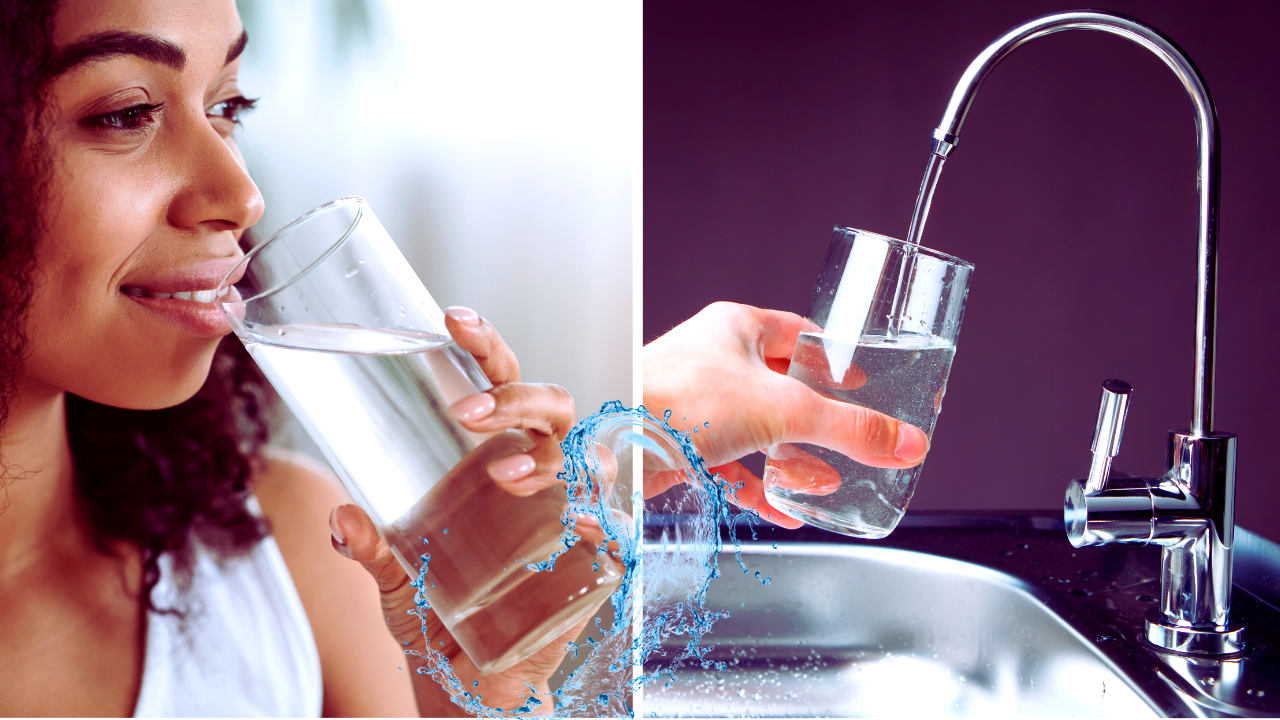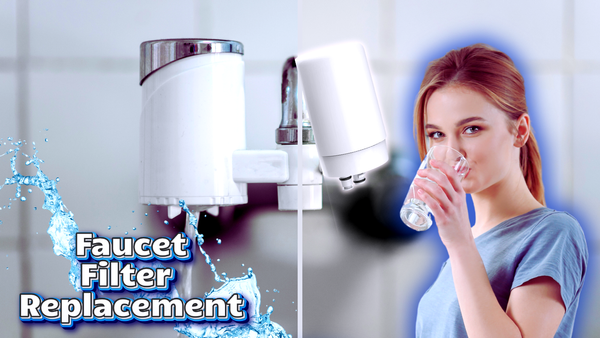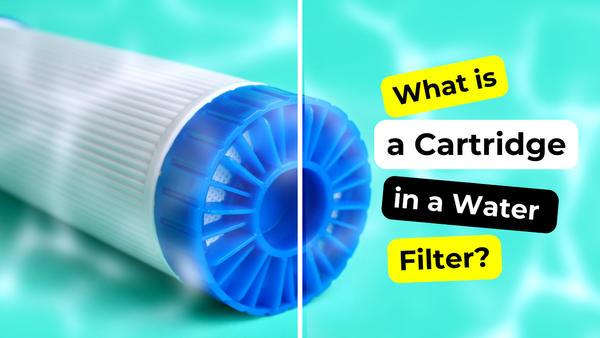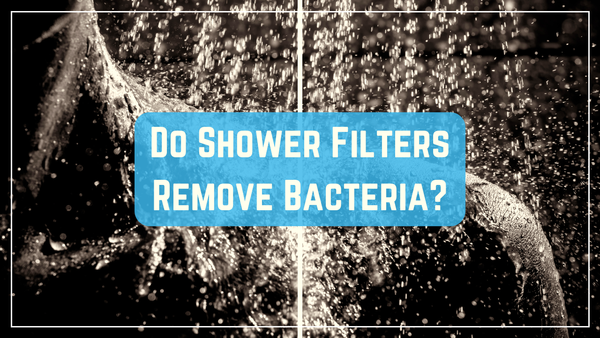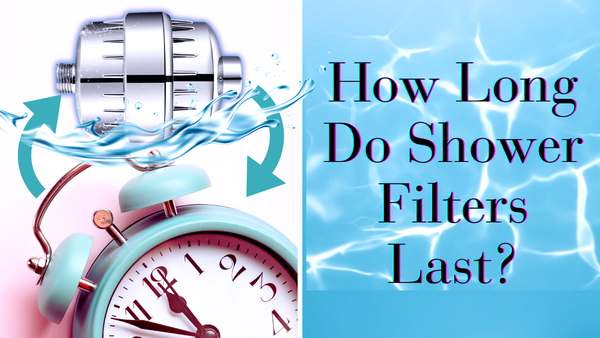Many ask, “Is filtered water good for health?” Yes, filtered water is good for health by removing contaminants from tap water while keeping the good minerals. Filtered water is bacteria—and chemical-free and can help with hydration and overall well-being. In this article, we will look at how drinking filtered water is good for health, the different filtration methods, and how to make your drinking water as good as it can be.
Key Takeaways
- Filtered water removes contaminants and retains beneficial minerals, which are good for health by aiding hydration, nutrient absorption, detoxification, and immune function.
- Different filtration methods, such as activated carbon filtration and reverse osmosis, target different impurities and harmful chemicals, like chlorine, heavy metals, and nitrates, for safe drinking water.
- Regular maintenance and timely replacement of water filters are important for clean, safe drinking water and to prevent bacterial growth.
Drinking Filtered Water

Drinking filtered water is good for your health beyond just quenching your thirst compared to drinking tap water. It removes harmful contaminants and keeps good minerals, so it supports skin hydration, nutrient absorption, weight loss, detoxification, digestion, and mental health. By drinking filtered water, you are filtering tap water, which can lead to good health by stopping bacteria, reducing diarrheal diseases, and boosting immune function.
Home water filtration systems like the Complete Home Water Filtration system give you clean and purified water for hydration and overall well-being. The taste and quality of filtered water make hydration an easier and more enjoyable task, which is essential for optimal health. We now look into how water filters benefit our health and well-being.
How Water Filters Work for Health
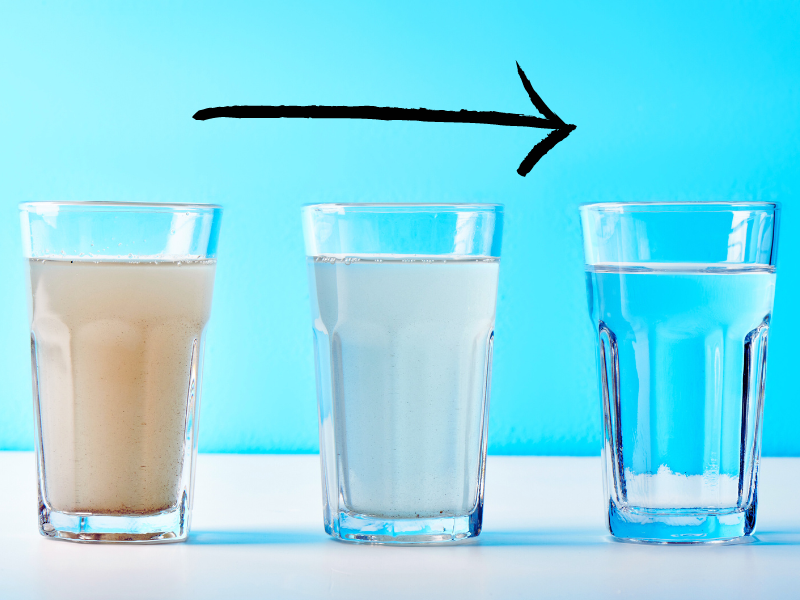
Water filters improve drinking water quality by removing contaminants that can pass through municipal water treatment processes. These filters use materials like gravel, sand, and activated carbon to trap impurities and absorb unwanted particles so the water you drink is clean and safe. Activated carbon filters, in particular, are good at removing chlorine, heavy metals like mercury, lead, and arsenic, and disinfection byproducts, which can be harmful if ingested.
PUR's advanced filtration system goes further by using activated carbon with smaller pores and ion exchange materials that remove unwanted metals for an extra layer of protection against harmful substances. These systems by filtering tap water reduce the risk of certain cancers and boosts immune function so overall health and well-being.
Having a water filtration system in your daily routine ensures you have clean and pure water. It not only improves the taste but also makes you drink more water for hydration and overall health.
Mineral Balance in Filtered Water
Water filters remove harmful contaminants and keep good minerals like magnesium, calcium, fluoride, and zinc which are good for bone health, dental health, and overall metabolism. But some filters may accidentally strip off good minerals like magnesium, calcium, iron, manganese, and fluoride which are important for the body’s mineral balance. Choosing a filter that retains these good minerals is key to healthy drinking water.
Filtered Water vs Tap Water
Filtered water has many advantages over tap water mainly in taste and safety. Tap water is generally safe to drink but it contains many contaminants like chlorine, heavy metals, and other impurities that can affect its taste and be harmful to our health. Filtering tap water removes these contaminants and gives you cleaner and better-tasting water that’s more enjoyable to drink.
The taste of filtered water makes you drink more water which is a key to proper hydration and overall health. By removing harmful substances and retaining good minerals filtered water is a more balanced and healthier hydration option compared to unfiltered tap water.
The Truth About Water Filters and Harmful Chemicals
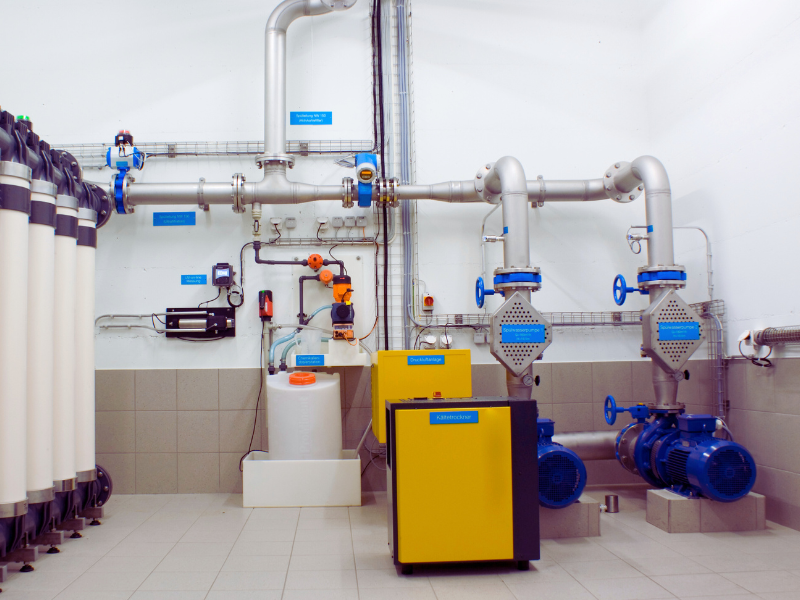
Water filters do more than improve taste; they remove harmful chemicals and contaminants from tap water to make it safe to drink. Filters like activated carbon, reverse osmosis, ion exchange, and distillation each work in specific ways to clean water. It's important to know that not all filters are the same, and their effectiveness depends on what's in your water. Maintaining and replacing filters on time is vital to keep them working well. Choosing the right filter is key to staying healthy and having clean drinking water.
Targeting Chlorine and Other Chemicals with Activated Carbon Filters
Activated carbon filters effectively remove chlorine and chloramine disinfectants from drinking water, significantly improving its taste and safety. These filters allow water to flow through activated carbon, which traps and absorbs unwanted particles and chemicals. Catalytic carbon, a type of activated carbon with an altered surface, acts as a catalyst to remove complex molecules such as chloramines and disinfection byproducts.
Impregnated activated carbon can target specific contaminants by infusing the carbon with substances that adsorb particular chemicals like nitrates. Using activated carbon filters ensures that your drinking water is free from harmful chemicals and has a clean, refreshing taste.
Reverse Osmosis
Reverse osmosis systems are particularly effective at removing heavy metals such as lead, mercury, arsenic, and cadmium from drinking water, which can contaminate water supplies due to industrial waste, mining, or deteriorating infrastructure. These systems can remove up to 99% of heavy metals and are also capable of filtering out other contaminants such as chlorine, fluoride, bacteria, viruses, and microplastics.
The technology behind reverse osmosis employs a semi-permeable membrane with microscopic pores, allowing only pure water molecules to pass through while capturing heavy metals and impurities. To enhance the removal of various contaminants and protect the reverse osmosis membrane from damage, these systems are often paired with activated carbon filters in a multi-stage filtration setup.
While reverse osmosis filters are highly effective, they can be water-intensive and slower compared to other filtering methods. However, the benefits of improved water taste and reduced levels of harmful chemicals make them an excellent choice for health-conscious individuals and families.
Why Not All Filters Are Created Equal
Choosing the right water filter depends on identifying specific issues in your tap water, such as hard water, chlorine, discoloration, sediment, foul odors, or metallic tastes. Activated carbon filters, for instance, improve taste but may not fully address all contaminants. Most filters employ multiple methods to handle pollutants since no single filter can eliminate contaminants alone. Tailoring your choice to your water quality needs ensures safe and healthy drinking water.
The Benefits of Drinking More Water
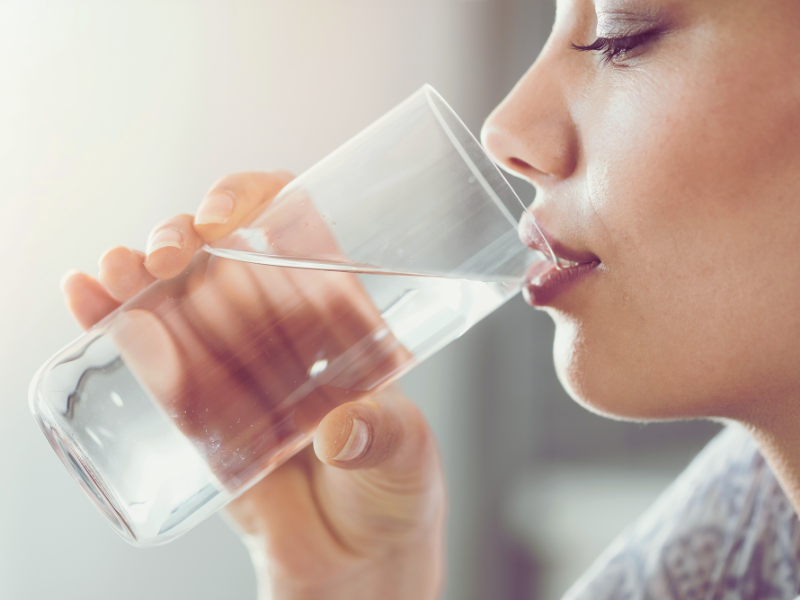
Consuming sufficient water is necessary to sustain normal bodily functions and ward off dehydration. Water plays a crucial role in:
- regulating body temperature
- lubricating joints
- eliminating waste through urine, sweat, and bowel movements
- transporting nutrients to cells
- ensuring that joints and organs are well cushioned
Ensuring sufficient water intake is vital for maintaining overall health and well-being. Dehydration can result from not consuming enough water, leading to symptoms such as:
- muscle weakness
- cramping
- lack of coordination
- increased vulnerability to heat-related illnesses
It’s important to stay adequately hydrated to avoid these potential issues. By understanding the importance of hydration, you can improve your overall health and well-being. Now, let’s examine the link between hydration and both physical and mental health.
The Connection Between Hydration and Physical Health
Proper hydration is crucial for nutrient absorption, detoxification, digestion, and overall physical health. The recommended water intake for men is about 3 liters (13 cups) per day, and for women, it’s approximately 2 liters (9 cups), with an increased amount for pregnant and breastfeeding women. Consuming water-rich fruits and vegetables is another effective way to meet daily hydration needs.
Dehydration can lead to symptoms such as fatigue, fast breathing, and muscle weakness, while overhydration may result in nausea, headaches, cramps, weakness, and confusion. Maintaining a balanced fluid intake is essential for supporting bodily functions and overall health.
Mental Clarity and Drinking Pure Water
Overhydrating can lead to an imbalance of electrolytes such as chloride, sodium, and potassium, which may result in cognitive symptoms like confusion and impaired mental clarity. Drinking pure water helps maintain the balance of these essential electrolytes, supporting mental clarity and cognitive function.
By ensuring proper hydration, you can enhance your mental performance and avoid the risks associated with both dehydration and overhydration. Drinking filtered water provides a safe and effective way to stay hydrated and maintain mental clarity.
Cost-Effective Hydration
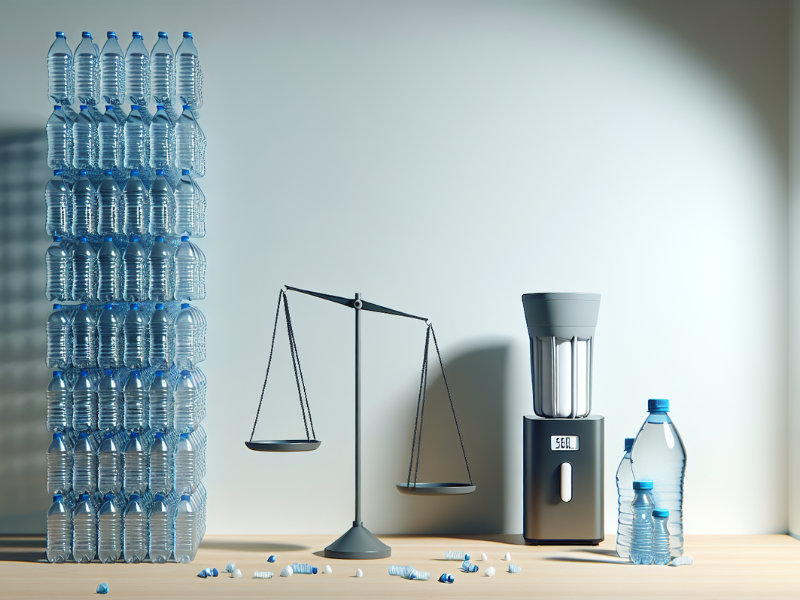
Adopting a home water filtration system provides an economical and eco-friendly substitute for bottled water. By purifying tap water, you can relish high-quality, healthy water straight from your tap, eliminating the need for costly bottled water. Home water filtration systems provide the convenience of having clean, purified water readily available, making it easier to stay hydrated.
In addition to cost savings, using home water filtration systems helps reduce plastic waste from single-use bottles, contributing to environmental conservation efforts. By investing in a home filtration system, you can enjoy the benefits of clean drinking water while also protecting the environment. Now, let’s analyze the costs and environmental ramifications of using filtered water as opposed to bottled water.
Breaking Down the Costs: Filtered Water vs. Bottled Water
Home water filtration systems offer a more economical solution for drinking water compared to bottled alternatives, generally amounting to just a tenth of the price. A family of four can achieve significant savings—between $6,000 and $10,000—on bottled water costs throughout 15 to 25 years, which is typically the lifespan of a quality water filtration system.
Although reusable water bottles come with a higher initial price, they contribute to financial savings in the long term by curtailing the recurring expenses tied to the purchase of disposable water bottles. The initial cost of a home water filtration system, such as a reverse osmosis filter, is quickly neutralized by the reduction in expenses from not having to continually purchase bottled water.
Environmental Impact: Reducing Plastic Bottle Waste
Home water filtration systems help reduce the generation of plastic waste from single-use bottles, contributing to environmental conservation efforts. Switching to a reusable water bottle aids in reducing pollution, curtailing global warming through decreased CO2 emissions, and alleviating plastic pressure on landfills and ecosystems.
By using a reverse osmosis filter, individuals can minimize plastic waste and play a significant role in promoting environmental sustainability. The use of a home water filtration system can prevent between 21,900 and 36,500 plastic bottles from contributing to landfill waste over the lifespan of the system.
How to Choose the Right Water Filter
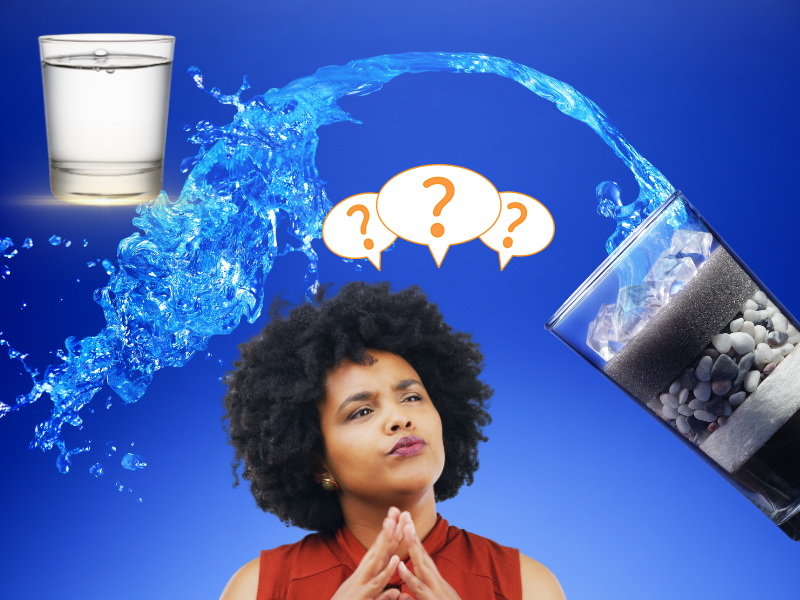
Choosing the appropriate water filter requires consideration of several factors such as its compatibility with your home setup, the specific contaminants it eliminates, and the certifications it holds. Different homes and water supplies have unique needs, so it’s essential to choose a filter that addresses your particular water quality issues.
Now, let’s delve into popular water filtration methods and how to ascertain your water quality and filtration requirements.
Popular Water Filtration Methods
Water filters are divided into two main categories: point-of-use and point-of-entry. Whole house water filtration systems are point-of-entry filters that treat all the water that enters your home so that water used for everything, from drinking to bathing, is filtered. Key water filtration methods include mechanical filters, ultraviolet light filters, faucet systems, and pitchers.
Mechanical filters remove different sizes of physical particles, measured by their micron ratings, and UV light filters kill water by disrupting the DNA of microorganisms. Faucet and pitcher filtration systems are convenient for filtered water at specific points of use, so they are popular with many households.
How to Identify Your Water Quality and Filtration Needs
Knowing the type of water in your area helps you decide if you need a water filter because it can tell you what contaminants are present and what type of filtration you need. For example, if your tap water has high chlorine levels a filter with activated carbon would be suitable. If your water supply has high levels of heavy metals a reverse osmosis system would be more effective.
By testing your water and identifying the contaminants present, you can choose a water filter that meets your needs and ensures safe drinking water. This tailored approach means you get the right filter for your home.
How to Maintain Your Water Filtration System
Regular maintenance and timely filter replacement are key to getting your water filtration system to perform at its best. Water filters are loved for their convenience, ease of use, durability, portability, quick change features, and low maintenance requirements. However, neglecting to maintain can lead to bacterial growth and reduced filtration performance. Cleaning and sticking to replacement schedules is essential for continuous access to clean, pure water.
Cleaning and Maintenance: Keep Your Filter in Shape

Water filters should be changed and disinfected every 3 months to prevent bacterial growth and to maintain performance. After changing the water filter, add a teaspoon of unscented chlorine bleach to disinfect and kill bacteria. Following the manufacturer’s instructions for cleaning water filters is key to preventing clogging and maintaining the flow rate. Strange noises or air bubbles in inline water filtration systems mean the filter needs to be replaced. Regular maintenance means your water filter will give you clean and safe drinking water.
When to Replace Your Filter: Timers and Indicators
Faucet filters should be replaced every 3 months, pitcher filters every 2 months, or as per the pitcher’s instructions. Many filters have an expiry date or visual indicators to tell you when to replace the filter. Replacing water filters regularly is key to the filtration system’s performance. Follow these guidelines and your water will be clean and safe to drink.
Summary
Filtered water has many benefits from taste and hydration to removing contaminants. Water filters use different methods to ensure the water you drink is clean, safe, and chemical-free. By knowing the different filtration methods and choosing the right filter for you, you can enjoy the benefits of filtered water.
Switching to home water filtration systems not only saves you money but also reduces plastic waste and helps the environment. Regular maintenance and timely replacement of filters are key to its continued performance. Get the benefits of filtered water and switch now for a healthier and more sustainable life.
FAQs
What are the benefits of drinking filtered water?
Drinking filtered water has many benefits, including skin hydration, nutrient absorption, and weight loss. It also supports detoxification, digestion, and mental health.
How do water filters remove contaminants?
Water filters remove contaminants by trapping them in materials like gravel, sand, and activated carbon, which absorb the unwanted particles.
What minerals are retained in filtered water?
Filtered water retains essential minerals like magnesium, fluoride, calcium, and zinc.
